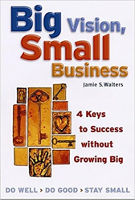
Image by Tumisu
There are many books, organizations and web-site resources with information about the wide variety of wisdom and mastery practices available to you. What follows are some brief observations on the activities from my own repertoire, from which I draw for my personal faith and mindset practice. I don't do all of these things every day but, across the span of any given month, I endeavor to do some combination of these activities or disciplines regularly.
The result? For me, greater clarity, less time feeling scattered, more awareness of how my mind plays tricks on me, a feeling of connection to others, and a decreased likelihood that I jump to conclusions or fall prey to someone who's trying (purposely or not) to push my hot buttons. In general, when I'm minding my faith practice, I feel more connected to a Source that is much wiser and stronger than I am alone, which gives me a great sense of well-being and helps me make better decisions, regardless of the day's chaos. When I'm not finding time for my practice, the results are quite the opposite. Here are a few options for your practice toolbox:
Allowing Versus Forcing
If you're a control freak, I feel your pain, and know first-hand that this practice offers both significant challenge and significant reward. Assuming you own a business or feel competent enough to give business ownership a go, I would guess that you're fairly (if not especially) skilled in finding your way from blank canvas to finished painting, and have a specific vision of how, exactly, that might happen. That means you like to have a certain amount of control over the circumstances, and perhaps people and resources, to get things done.
Yet there are times (as in almost always) when trying to control every factor relevant to a particular goal or need is like trying to sweep water up a hill. And what happens then? Instead of adopting a realistic perspective -- that sweeping water uphill is a losing proposition -- you try and try until you become completely stressed over your inability to control the circumstances you deem crucial to your vision and well-being. What is the reality? That very little is actually in your control.
As the ancient Stoic philosophers knew, wise men and women that they were, the only thing you can truly control is your own thinking and behavior. Everything else, from the weather to the stock market to someone else's behavior, including their love for or rejection of you, is well beyond your control. And coming to that understanding can be intensely liberating, if not easy.
In deciding to mind your own thoughts and behavior -- or "show up to the party," as a friend of mine puts it -- you can then practice your ability to allow factors outside of your control to find their own order within the seeming chaos, or to rightfully fall to the wayside as truly unimportant to your wellbeing. Sounds tough, doesn't it? It can be, primarily because it's impossible for many of us to believe that such an order will arrive unforced. We lack faith, whether in our own ability or the presence of our Guiding Force.
One way to overcome this doubt is to see the concept of "allowing" not as a matter of being passive, because that would be a misperception, but more as a matter of doing what's within your control and then trusting your ability to adapt or respond to other circumstances that come your way. You can, in the words of the Tao Te Ching, be like the valley through which the rivers flow.
Communication Skillfulness
Interpersonal and organizational communication is an area of professional focus for me, and yet communication can also be a sacred practice in and of itself. Most wisdom traditions focus not on our separation from others, but on our connection to others. What's more, faith teachings emphasize the quality of our interactions and interconnections, whether called right relationship or "doing unto others" as we would have them do unto us.
Communication skillfulness -- your ability to listen deeply or speak clearly and compassionately -- requires that you align your heart and mind with the more technical skills of interpersonal communication. That means you watch your intentions, unclutter your mind, and focus completely on someone else for a period of time, as might be the case in a meeting, or for a more fleeting connection, as would be the case on the bus or in a grocery-store line.
To communicate well is to commune with others, build stronger relationships and feel the satisfaction inherent in deeper connections. Right communication, as we'll call it, is not specific to any one faith or mastery tradition. You can practice skillful communication throughout your normal workday and after (although you can also schedule times to practice more deeply).
Nature
My parents trained me young to see fresh air and communing with nature as a source of relaxation and inspiration. My mother, for her part, was forever encouraging my sisters and me to "Turn off that television and go outside." My father, who in addition to being a fellow introvert is a renowned conservation and outdoors enthusiast, took me along on fishing trips and hiking expeditions around his camp in the country. The lesson stuck: When I need to clear my mind or unclog my inspiration channels, I head outdoors, whether for a walk around the block or a trip up the coast or to the mountains.
Aside from exercise and clarifying doses of fresh air and sunshine -- which are benefits not to be underestimated -- getting out into nature offers valuable life and business lessons. When I take a walk or go for a hike, everywhere I turn I see evidence of the natural cycle of life. Whether in the city or country, some things are just sprouting, some are nearing the end of their life cycle, and others have long since died. Some plants are vibrant in color, while others are more subdued. Tides ebb and flow, and rivers and streams rush toward the sea or trickle to a near stop. Creatures emerge ravenous from a period of hibernation, or gather resources in anticipation of leaner times.
Winter, like the desert, seems cruel and stark, yet both teem with creation and life. Nature reminds me that "for everything there is a season, a reason for everything under the sun." Far from being impractical, these lessons are directly applicable to the cycles that occur, like it or not, in business.
Gratitude
Gratitude seems like something you have, not something you practice. But practicing gratitude can have a profound effect on the quality of your day and thus, as a practice, enrich your life. By choosing to spend some portion of your day focusing on those things for which you're grateful, you spend that much less time stewing over what you don't have or what didn't happen. Given that many people, based on a multitude of philosophical and faith traditions, believe that you attract into your life that which you spend significant time thinking about, watching what you think about makes sense.
Yet practicing gratitude, particularly if you're openly doing so, can be more difficult than it should be. This reality, particularly in our culture, fascinates me. How often have you heard, for example, people apologize for seeming "Pollyanna-ish" due to their optimism or positive thinking? How sick are we as a culture that we feel sheepish when we're not steeped in pessimism, negativity or feelings of victimization?
You'd be surprised at how often you encounter resistance after you speak openly in the language of gratitude, when what you hear back from others is a litany of "Yeah, but..." and "Well it's easy for you, but..." But, but, but. So practicing gratitude can be unnerving for others, particularly if it marks a change from an old habit of more negative, scarcity-based thinking. As massage therapist Christopher Adamo said, "We commiserate in misery, but we hoard our joy." Big-vision business owners choose not to wallow in misery, and opt to share both their abundance and their joy.
Many of the business owners with whom I spoke for this book said they felt lucky to own a business, or blessed because the road rose up to meet them time and again. A gratitude practice promotes such an overall feeling of abundance. You can spend five minutes in the morning listing three things for which you're grateful in that moment, or you can focus a daily prayer or meditation on the concept or feeling of gratitude. Regardless, the reminder of the many ways in which you're blessed, of the many things for which you can feel gratitude, can lend buoyancy during times of challenge and momentum from the realization that you're always in a season of plenty should you choose to see it.
Prayer and Meditation
If I had to select one practice that is the most important to my sense of equilibrium and well being, I'd have to choose prayer and meditation. These are what I would call Source Practices, from which all others can flow. What's the difference between prayer and meditation? One of the best definitions I've seen is that prayer is when you talk to God or Highest Self, and meditation is when you listen for the response. A balanced practice makes time for both.
Occasionally I'm asked, in true Californian fashion, what type of prayer and meditation I practice. Asking such a thing in casual conversation would have been considered rude in the Northeast, where I grew up. The question both amuses and frustrates me, primarily because the person asking almost always believes that there is only one way to do each. But that's not so. The variety of ways we can pray and meditate is, in itself, a miracle and an inspiration.
Beyond that initial definition of talking to God and listening for a response, prayer and meditation can take many forms other than the most obvious or familiar. You can create a space and assign a specific time for daily prayer; read sacred texts and reflect on their meaning in your daily life; sit in prayer or meditation; make certain activities a kind of prayer or meditation, as Mohandas Gandhi did with his spinning; or you can do walking prayer or meditation. You might, as the Zen practitioners do, center your attention on your breathing. Or you may choose centering prayer, in which you repeat a sacred word or favorite prayer, or center your mind on a virtue such as generosity or love.
Living in San Francisco, I'm most fortunate to be surrounded by people taking a variety of paths to Truth. Walking in my neighborhood, I see or hear Buddhism, the Tao, Confucianism, Judaism, Catholicism, Orthodoxy, Protestantism, New Age, Christian Science, Mormonism, Islam, Hinduism and other belief systems in action. I smell the incense and see the prayer shrines, and each time am reminded of how important it is to make a place for the sacred among my daily activities.
Service To Others
Would it change your day if upon waking you asked, "How can I be of service?" If, after asking, you journeyed through your day as if each circumstance provided an answer to your question?
I have several favorite anecdotes or readings to help remind me of the practice of service to others. One is attributed to Mother Teresa who, upon being asked how one could change the world, responded with her trademark directness, "If you want to change the world, pick up a broom." Like Dorothy Day, another proponent of the value of "the little work," Mother Teresa reminds us that great change and great contribution finds itself in our willingness to do the small things -- picking up a broom, answering the phone, doing paperwork -- with an attitude of service and generosity.
In The Seven Spiritual Laws of Success, Dr. Deepak Chopra also suggests that being of service doesn't have to be expensive or elaborate. You can be of service in the smallest of ways, such as holding open a door, offering a seat on a bus or giving a smile to someone who might treasure that contact in an otherwise lonely day. Chopra writes, "When you meet someone, you can silently send them a blessing, wishing them happiness, joy and laughter."'
Most mornings as I ready myself to begin my workday, I reflect on one of several prayers, such as that of St. Francis of Assisi. The Assisi prayer orients me toward being of service to others instead of solely to myself. When I say, "Make me an instrument of your peace" or "Grant not that I seek to be consoled, but to console others; to be understood but to understand others; to be loved but to love others," I shift into an awareness that, instead of being self-centered and brusque, I can serve through my willingness to listen or in a humble offering of even the smallest gesture of compassion or kindness.
Support from Advisers and Peers
Cultivating a support network is such a worthwhile practice that I'm always amazed when a business owner, for whatever reason, refuses to seek counsel and wisdom from others. I recently worked with an individual who felt the enormous pressures of business ownership, but who refused any suggestions that he identify peers from whom he could seek guidance and ideas. According to Larisa Langley, who spent nearly five years with the San Antonio Chamber of Commerce before joining a small business herself, this self-enforced isolation has a high price.
"Pride goeth before a fall. A lot of times, that's one of the problems," says Langley. "Some small-business owners can be very stubborn, and that can be a very good thing. They're not going to give up. But that stubbornness can be their downfall, because they're incapable of asking for help or asking for assistance when they need to."
A business owner's circle might include peers with whom you meet over lunch or coffee (or even via e-mail); an informal advisory board made up of your attorney, accountant and another business owner or two; or a mentor who has been in business longer than you. You can also hire a personal coach to provide regular counsel; a person who will demand accountability from you as you undertake the journey from living according to someone else's standards to the more authentic reality -- and balance -- you've envisioned.
Mindfulness
Mindfulness is a word that is often associated with Buddhism. However, the concept and practice of mindfulness also appears in other practices, both sacred and philosophical. Many traditions urge us to wake up and be conscious to what we're doing at any given moment. Mindfulness -- or awareness -- is a matter of paying attention, right now. Think about how often you're doing one thing -- meeting with someone, for instance -- but you're really not there at all. Instead, you're thinking about something that happened yesterday or how something will work out tomorrow. You're preoccupied with something other than the person with whom you're meeting.
You might also walk, eat or even drive mindlessly, and find yourself tripping or bumping into things, choking on or spilling your food, or driving into the back of someone else's car. Lama Surya Das, teacher and author of Awakening the Buddha Within, wrote, "Our lack of mindfulness makes us careless: Often we hurt others without thinking or sometimes even without noticing we've done so."
As with many spiritual practices, nurturing a habit of being more aware has very tangible results. "I'm much more conscious of trying to deal with things as they are rather than how I want them to be. I'm more in tune with reality, versus what I think or would want to happen," says Susan Griffin-Black, founder of EO Products in Corte Madera, California. Griffin-Black has seen her business through a number of typical challenges, including buying out her original investors, regulating cash flows and presiding over an expanding number of retail outlets. She has seen practical benefits in her approach toward her business since beginning a meditation and mindfulness practice nearly a decade ago.
"Everyone has two modes of behavior: times when you're paying attention to what's happening in the moment, and times when you're on automatic," says Griffin-Black. "When you're on automatic, behaving as you think you should, the possibility for being reactive is higher. When you're more mindful, the possibility of being calm, kind and thoughtful is heightened. You make better decisions for the long term, versus when you are reacting and are more apt to lose your temper and make foolish decisions."
When you are mindful, you're making a decision to pay attention to what you're doing, as you're doing it. You become more aware. For example, you might notice things you've not seen before even though you drive past them every day, or you'll observe yourself reacting to certain situations or personalities in an unproductive way. Or you'll make different decisions about what you choose to say to someone else, because you're more aware of how your words affect others.
Just try it. Make a commitment to being more aware today, and you'll notice how often you're simply not paying attention.
Journaling
Journals have been the tool of choice for dreamers, explorers and movement leaders. In the past, people could save the letters received from friends and loved ones, and the letters themselves became a type of journal. But today, in the faster and more-crammed world that technology has allowed, people must make a more deliberate decision to write about their experiences, challenges and insights in a journal.
Aside from being a chronicle of your journey, as so many journals in hindsight become, taking pen in hand to write in a notebook can produce an unexpected bonus. The very act of writing by hand forces you to slow your thoughts and quiet the incessant chatter that is the hallmark of the busy mind. Liken it to driving: Imagine that you have an appointment with a wise counselor, and are looking for a particular address in an unfamiliar place. Are you more likely to find what you're looking for if you're speeding along at 75 miles per hour, or if you slow down to a speed that allows distinctive buildings and signs to emerge from the blur of what you're passing?
There are other journaling exercises that can be helpful in solving a problem or seeing a situation differently. One that you might find interesting involves writing out a question or issue in your nondominant hand. What's the point? As Albert Einstein said, you won't solve problems by using the same approach that got you where you are to begin with. When you do something differently, such as writing with your left hand if you usually use your right, you break a pattern. In the process, you might allow yourself a more creative way of seeing or thinking.
You can also draw, use crayons or other colored writing tools, or glue in words or pictures you've cut from a magazine. You might be thinking, "I don't have time for that. Besides, that's for children." What do you think it means that, to reach the kingdom of heaven, you must become like a child again? Many creative activities seem childish, and yet creativity awakens inspiration. And inspiration is exactly what you need to fuel your enthusiasm and meet the challenges of business ownership in unusual and energizing ways. So if your inner-adult is really that oppressive, schedule a date with a child to journal, color and make a collage.
Wellness and Rejuvenation
I have a confession to make. One of the excuses I loathe most is, "I just don't have the time." I just flat out don't believe that's true. In fact, as excuses go, I think this one is lame and uncreative. How often do you say this? Make a promise to yourself, right now, that you'll no longer use this excuse. You have as much time as everyone else on the planet. How you spend that time is your choice, so you choose not to do something.
Why does this come up in a section about wellness and rejuvenation? Because many people claim not to have the time for activities that will renew them, and then complain about how exhausted they are. Maybe you've said this yourself. Do you say you're too busy to eat a decent lunch, and do it in a civil timeframe that doesn't require you to choke down your food? Do you complain about your aching back, shoulders, neck or arms, but say you're too busy to schedule an appointment with a neuromuscular massage professional? Do you lament the degree to which your business has taken over your life, while insisting that you don't have the time to see a movie, read a non-business book or go to the park? Can you see that an alternative is just one decision away?
Attending to your wellness is another Source Practice that, if tended carefully, allows you to fulfill your obligations more healthfully and skillfully. When you make sure your mind, body and spirit are well fed, you become less tired, harried, scattered and reactive. You find that you do, indeed, have the time for everything that's most important to you, including your wellness practice. Taking care of yourself might mean eating healthfully (and not rushing through your meals); getting physical exercise, whether taking a short walk or running a marathon; spending time in prayer or meditation to quiet your mind and ease your physical and mental stress; playing with children or animal companions; nurturing a hobby; scheduling regularly at a spa; or any number of other activities that suit your interests and are therefore things you'll do regularly.
Baseball
This list wouldn't be complete for me without baseball, which may seem an unlikely candidate for a wisdom- and mastery-practice list. But any baseball lover will understand why it's included here. To me, as to other lovers of the diamond sport, baseball is a great metaphor for life. Endeavor to appreciate baseball, and many things become clear.
I followed the New York Yankees as a young girl growing up in upstate New York, and then lost interest in the sport for more than a decade. When I tuned in to watch the Florida Marlins play the Cleveland Indians in the 1997 World Series, I became a baseball fan again. That was a great series, with long games played well beyond the usual nine innings. The players were putting everything they had on the line, out by out, inning by inning, game by game. The teams were well-matched in skill, mindset and heart, and winning a division, and certainly the Series, requires all three. Therein you find the most important lessons.
Take the psychology of the closer, for example. For non-baseball fans, the closer is the hard-throwing pitcher who finishes the game, usually coming out in the last inning to maintain the lead or prevent the other team from scoring. Three outs, a matter of minutes; that's all the time the closer has to do his job. When he's in flow and everything goes well, his team wins the game and he's a hero. If he has a bad night, which for a closer might amount to just one bad pitch, he makes his mistake in front of the 50,000 fans in attendance and thousands more watching the game on television. Instead of saving the win, his one mistake costs his team the game.
As a result, the closer must be particularly adept at managing his mindset, staying in the moment, clearing out the noise and relying on his experience and skill to do what's needed right then. After a bad night, or even several horrendous outings, he must still come to the pitcher's mound thinking of nothing but what he has to pull off: Forget yesterday's loss and that he's been in a slump, and do what it takes to get the next three batters out. And you think you have pressure?
Similarly, a baseball player is cheered for his .334 batting average -- which means that he's hit the ball one time out of every three chances, or failed two-thirds of the time. That 33-percent success ratio makes for a great year at the plate. Or a player might spend hours perfecting his mechanics -- the smallest of details that most people don't notice but which make all the difference in the highest levels of performance.
The great players and teams go further still. In the most recent division playoffs, players interviewed before the game seemed uncertain and unconfident. They and their team would inevitably lose the game that night. Individually and as a team, they weren't together in mind, body and spirit. Watching them on the field, in contrast to other outings, they didn't seem altogether there. In their minds and hearts, they'd already lost the game. In a field where everyone is skilled, attending to mind and spirit, and doing it more often than not, becomes a distinguishing factor.
The game is full of such lessons, of examples of peak-performance psychology and of the cyclical nature of things. And many people find the same lessons, or just relaxation, in their sport of choice, be it football, soccer, hockey or professional wrestling. But from April through October, you can be certain that I'm making the time to watch the San Francisco Giants, regardless of how busy the day looks. I'm always amazed at how it parallels my life, and how its lessons can be easily adapted when I head into the office the day after a great game.
Reprinted with permission of the publisher, Ivy Sea Publishing. ©2001. www.ivysea.com
Article Source
Big Vision, Small Business: 4 Keys to Success without Growing Big
by Jamie S. Walters.
 While most of the business world worships size and constant growth, Big Vision, Small Business celebrates the art—and power—of small. Based on interviews with more than seventy small-business owners and on her own experiences as a successful small-business entrepreneur, Jamie Walters shows how a business can stay small and remain vital, healthy, and rewarding.
While most of the business world worships size and constant growth, Big Vision, Small Business celebrates the art—and power—of small. Based on interviews with more than seventy small-business owners and on her own experiences as a successful small-business entrepreneur, Jamie Walters shows how a business can stay small and remain vital, healthy, and rewarding.
If you long to run a successful, socially conscious enterprise as one element of a fulfilling personal life, Big Vision, Small Business shows you how. Covering growth options and small-enterprise advantages, inspired visioning, communication, and right-relationship, mindset issues and expectation management, and wisdom and mastery practices, Big Vision, Small Business is a must-read for every entrepreneur and futurist.
Info/Order this book
About the Author
 Jamie S. Walters is the founder and CEO of Ivy Sea, Inc., an organizational consulting firm based in San Francisco. Jamie is the author of Big Vision, Small Business, and a guide and inspiration source for the visionary entrepreneurs and leaders who are rising up to redefine, realign, and create the new era for the way we live, interact, lead, and approach our work.
Jamie S. Walters is the founder and CEO of Ivy Sea, Inc., an organizational consulting firm based in San Francisco. Jamie is the author of Big Vision, Small Business, and a guide and inspiration source for the visionary entrepreneurs and leaders who are rising up to redefine, realign, and create the new era for the way we live, interact, lead, and approach our work.

























